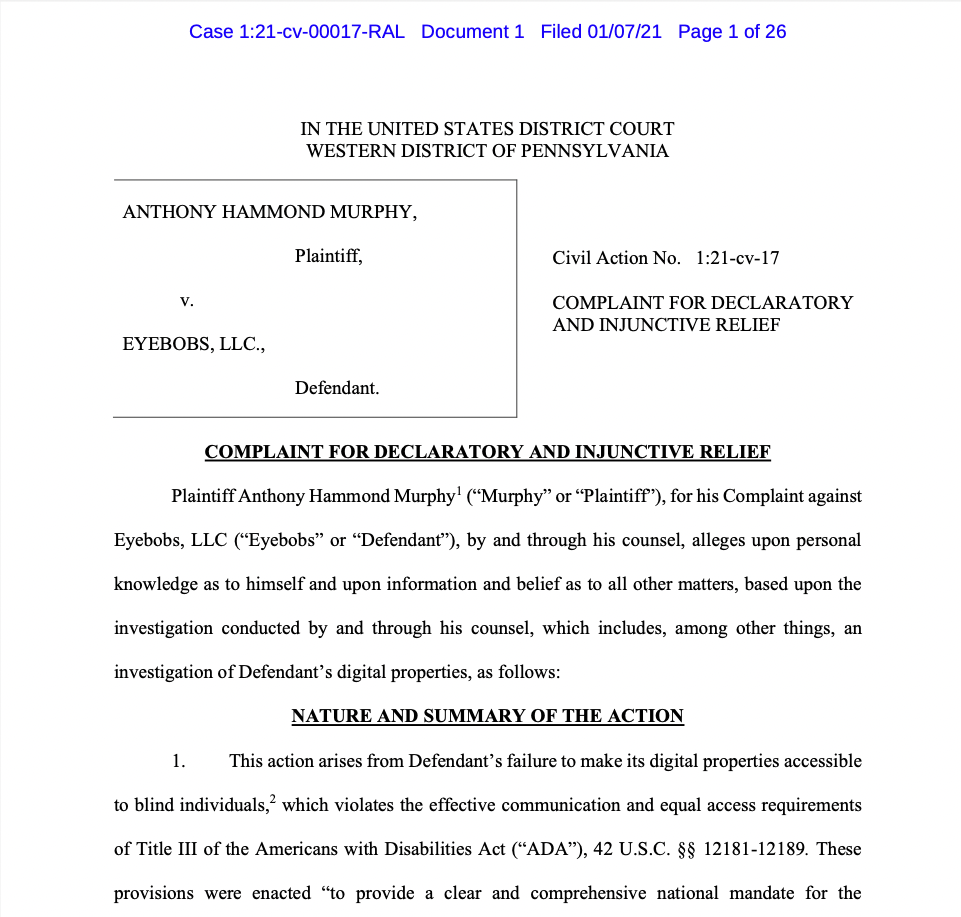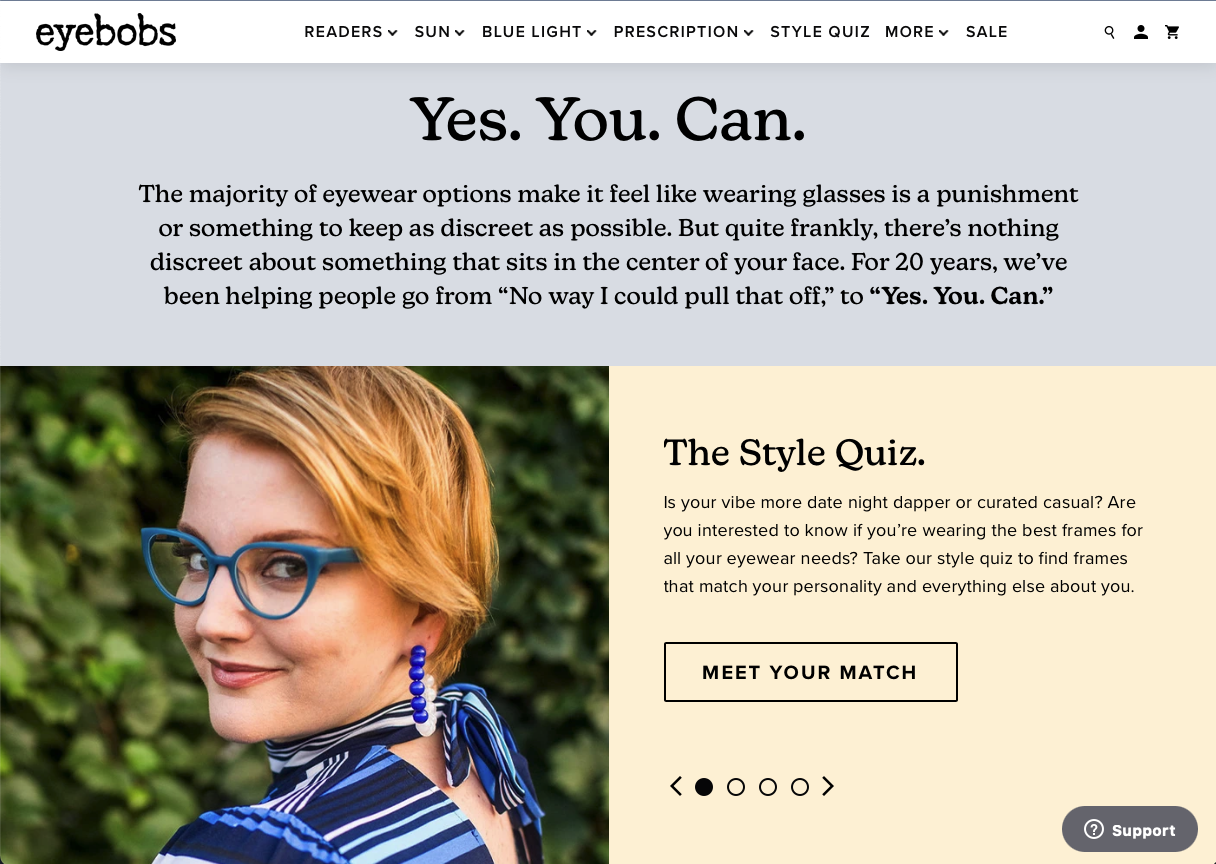ADA Class Action Settlement Approved
Oct 08 2021
U.S. Magistrate Judge Richard Lanzillo of the Western District of Pennsylvania granted lead plaintiff Anthony Murphy's unopposed motion to certify class for settlement purposes and for preliminary approval of class action settlement.
The suit was brought by Murphy on behalf of similarly situated class members against online eyewear retailer Eyebobs. The class consists of all blind and visually impaired individuals who use screen reader and other auxiliary aids to navigate Eyebobs’ webpage and other digital content but have been deterred from doing so due to the absence of features to facilitate access, according to Lanzillo’s opinion.
Along with certifying the class, Lanzillo said he found the settlement terms to be reasonable.
“The proposed settlement commits Eyebobs to ensuring ‘blind or visually disabled individuals full and equal enjoyment of the goods, services, facilities, privileges, advantages, and accommodations provided by and through its digital properties,’” Lanzillo said. “This commitment includes ensuring that ‘the U.S. portion of the website is accessible’ within 24 months of the effective date of the settlement agreement.”
However, Lanzillo’s opinion did not indicate the existence of a monetary award beyond a $1,000 incentive payment to Murphy and an unspecified amount of attorney fees.
The settlement requires Eyebobs to make several changes to policies, procedures and personnel to promote accessibility of its digital properties, including:
- Eyebobs’ appointment of one or more employees to comprise an ‘Accessibility Coordination Team'
- The performance of an Accessibility Audit of its Digital Properties
- Eyebobs’ adoption of an Accessibility Policy Statement
- Eyebobs’ implementation of an Accessibility Strategy
- Eyebobs’ providing of Accessibility Training
Lanzillo added that Eyebobs is to:
- Add an 'accessibility consultant’ to assist Eyebobs to conduct an accessibility audit of the website
- Advise Eyebobs’ on how to make the website accessible
- Verify that the website is accessible by the end of the agreement term
- Ensure any new websites and mobile apps, and any subsequently acquired websites and mobile apps, are accessible
- Ensure any third party content that may be required to be accessible is accessible
Lanzillo said that Eyebobs was also on a compliance deadline.
“Overall compliance is to occur within three years of the effective date of the settlement agreement. If compliance does not occur within this initial term, the settlement agreement provides for a term extension to four years and, if necessary, to five years to ensure compliance,” Lanzillo said. “The settlement agreement also provides for monitoring of Eyebobs’ compliance with its commitments, annual reporting, and dispute resolution procedures.”
Murphy is represented by Kevin Tucker of East End Trial Group, who could not immediately comment.
Eyebobs is represented by Sunshine Fellows of Lewis Brisbois Bisgaard & Smith, who did not respond to a request for comment.
Subscribe to AAAtraq and enjoy complete cover and peace of mind

